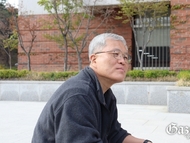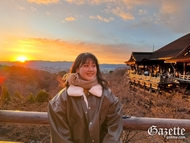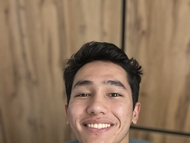
Many people are getting more and more interested in disabled people and social welfare. The “Gazette” interviewed the director of the Korea Employment Promotion Agency for the Disabled (KEPAD), Kim Sun-kyoo, who graduated from Keimyung University in 1984.
1. Please tell us about the Korea Employment Promotion Agency for the Disabled.
KEPAD supports disabled people in the workplace. We offer an employment promotion service and an occupation reform service. By helping disabled people get a job in the workplace where more than 50 people work, KEPAD can help disabled people get a stable job. We have fourteen branch offices in Seoul, Busan, Daegu, as well as other areas. We have five centers including the Ilsan Vocational Competency Development Center. We also have an Employment Development Institute in charge of studying employment and occupational rehabilitation.
2. You majored in English literature but you’re working for disabled people. Please tell us how you became the KEPAD director.
After I majored in English literature at Keimyung University, I went to graduate school. I studied at Daegu University’s Department of Special Education to more exactly know about disabled people. I was a member of the Daegu Rehabilitation Center in 1987. After I become the director of the first Ansim Social Welfare Organization, I became a professor of Rehabilitation Science and Technology at Daegu Mirae College. I then reached my current position.
3. Disabled people are discriminated against when seeking a job. What do you think about that?
People’s negative minds hinder disabled people from finding a job, and big companies also have strong unwarranted prejudice. It is a hindrance that big companies pay a fine to avoid their responsibility for employing disabled people. First of all, the government takes the initiative, by setting a good example to people and encouraging companies to hire disabled people. KEPAD tries to give disabled people better conditions by reaching an agreement with big companies. We try to provide chances to find a job for the visually disabled, the mentally disabled, and the hearing-impaired.
4. Recently, volunteer work by organizations has become very popular. What can students do to help disabled people?
Now there are social welfare departments in every district. They visit disabled people who can’t leave their home. Keimyung University students can take part in this program by having a chat, cleaning their house, helping with a bath, offering a dish, or just helping them go out. There are five or six social welfare departments located near Keimyung University.
5. What do you think of people who think several disabled policies promoted by the government were in name only? Is there a welfare policy that doesn’t help disabled people?
In fact, the budget allocated for disabled people is small compared with the economic growth of Korea. Among signatories to the OECD (Organization for Economic Cooperation and Development), Korea ranked low. We need economic support for disabled people. The welfare policy budget is too small. There is a law that prohibits non-disabled people from parking in disabled car spaces. There is a 200,000 won fine for people who break that law, but this law is not enforced, so it is meaningless.
6. In what ways can we help people have more concern for the disabled?
People must throw out their prejudice towards disabled people. Korea has very high traffic and industrial accident rates that cause 10,000 people to become disabled every year. The disabled problem becomes more visible around us. People must think that the disabled problem is our problem. For reference, the number of disabled people in Korea now is 1.8 million.
7. What do disabled people want the most?
Disabled people don’t want special treatment. They want an equal opportunity for participation. They long for adequate services for their own special needs. If their needs are filled, disabled people will be equal to ordinary people. I wish people would treat disabled people like a friend or a neighbor.
8. What do you want to say to students interested in social welfare?
Because this field is the place where people meet disabled people, you need affection, passion, and sincerity. Don’t hurry up, take your time, and make steady progress towards your goal.
9. How was your campus life? What were you interested in the most?
I spent my campus life on Daemyung Campus. While I took charge of the Christian Club as president with a burning desire for democracy, I strived for the protection of human rights for disabled people. I spent much time demonstrating on the street. I debated about democracy to a crowd in the open amphitheater until late at night. Taking part in the foreign language song festival has stayed with me as a happy memory.








